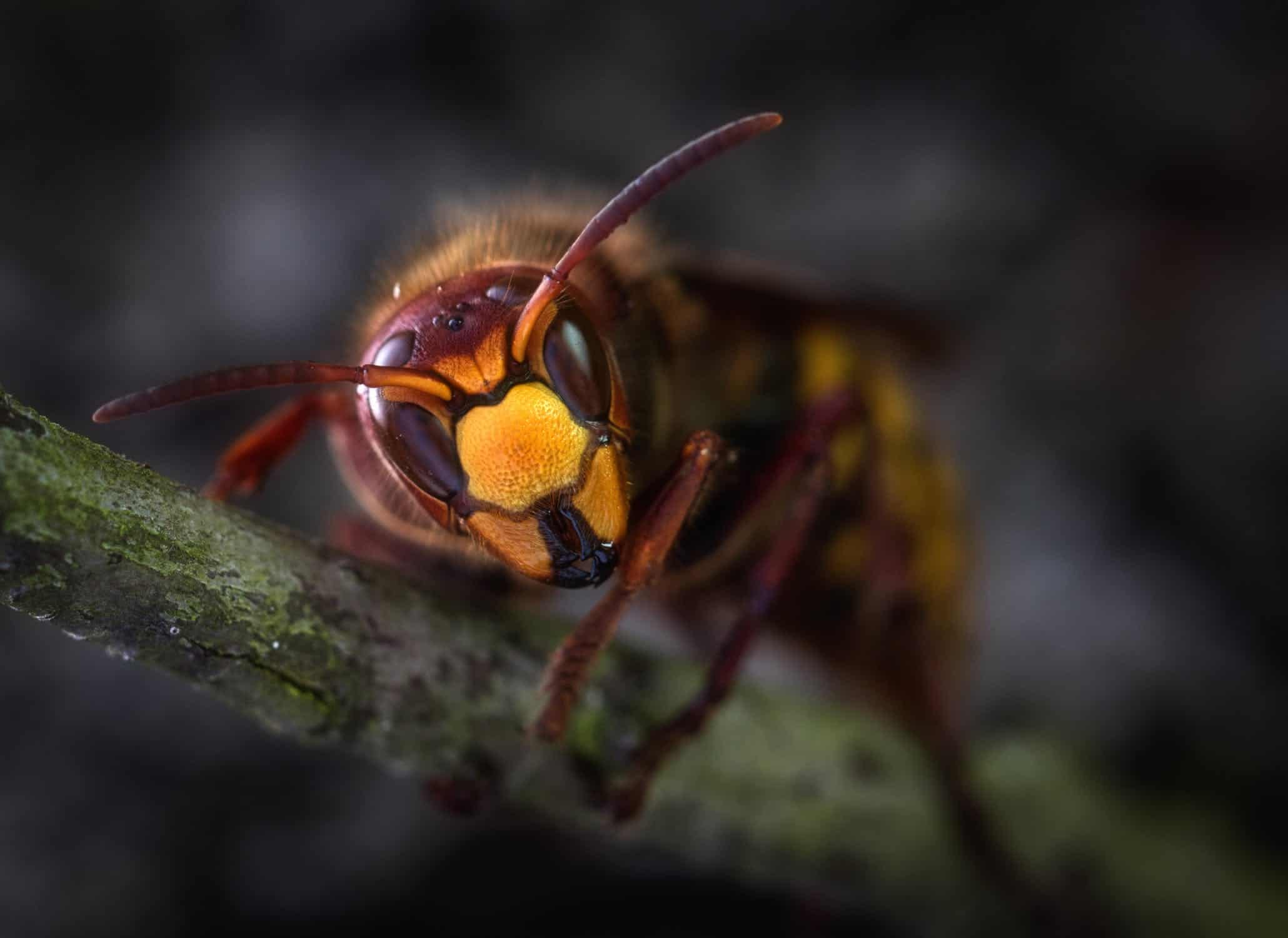If your patio is anything like mine, it seems to attract more and more wasps every year.
Even the old-timers tell me they don’t remember so many pesky, stinging wasps hanging around in their day. Why might this be the case?
Some people say that climate change is causing fewer cold days, which means that wasps can survive through the winter in some places. I’m not a climate scientist, but there’s no denying that wasp colonies are larger every year, and they have systems to warn other wasps when danger is present.
They release chemicals called pheromones that summons other wasps to come to their aid. For these reasons, it is best to find ways to keep wasps away from your patio without swatting at them or taking actions that will make them angry. At this point, you might be wondering “How?”
Keeping wasps away from your patio is a question of prevention, control, and removal. Simply put, make sure you don’t do anything to attract them, be proactive about eliminating individual wasps when you see them and take action to destroy their nests near your home.
Let’s dive in and explore the issue fully.
Prevention First
The first step is to take measures to deter wasps from bothering you and to prevent wasps from coming to your patio in the first place. Wasps are attracted to perfume and fragrant lotions, so make sure that you do not spend time out on your patio wearing these scents.
In addition, you can wear wasp repellant on your clothing.
If you are allergic, you should spray your clothes every few hours when you are out on the patio. If you combine water and spearmint, thyme, and lemongrass essential oil, you can safely spray yourself, your children, and your pets to keep the wasps away.
In addition, do not leave food out.
Make sure that you put any leftovers away, and throw out any garbage that might attract wasps. You should keep your garbage cans covered with a tight lid. Most food will attract wasps, including pet food and nectar or bird food you might keep in a feeder. This is also true for other pests, like slugs and snails (which you can keep away with coffee grounds — I wrote about it here).
If you have a bird feeder, do not hang it on your patio, as it will attract wasps. Put it away from the patio where you can see the birds, but the wasps won’t come and bother you.
Check the outside of your house around the patio for places that might need repairs. Any crack or crevice created by broken siding or paneling can quickly become a site for wasps to build nests.
If you have objects such as a patio umbrella or awning, dab the insides with wasp repellent. Without this prevention step, wasps might be tempted to nest inside it when it is closed.
Finally, you can make or purchase wasp decoys. Most wasps will not build a nest within 200 feet of one another because they are territorial. If you strategically place wasp decoys around your patio, it will help to prevent them from building nests around your patio.
Smells That Wasps Love
You want to avoid leaving anything outside that might get the attention of these pests. This list is long, but the biggest offenders are fruit juice, rotting fruits and vegetables, scraps of meat, and soda.
Smells That Wasps Hate
Likewise, if you’re looking to repel wasps you’ll want subject them to smells they simply can’t stand. Smells that wasps hate include peppermint, wormwood, and citronella.
Control the Wasp Population on Your Patio
If the wasps have already started coming to your patio, you need to limit them before they move in. Later in the summer and in the fall, there will only be more of them. The colony will grow throughout the spring if you don’t get rid of them.
You can vacuum up individual wasps as you see them. If you have an indoor/outdoor shop vac, this will work well. You should not swat the wasps to try to kill them or they will release their pheromone, which will be a signal for others to come.
You can also set wasp traps. These traps will also work for flies, which can be a nuisance as well. You can use a mixture of water and sugar to attract the wasps. They will fly into the container to drink the mixture, but they are unable to get out.
You can purchase these containers (here’s a handy link if you’re in the market — affiliate), or you can easily make your own out of a two-liter plastic bottle. If you cut the neck off of the bottle, you can flip the bottle and place the piece inside out on the bottom.
Use duct tape to join the pieces together, and pour the sugar and water mixture into the trap.
Another great way to get rid of wasps is to surround parts of your patio with plants that repel wasps. Natural wasp deterrents include spearmint, citronella, thyme, wormwood, and eucalyptus. If you replace flowering plants with these plants near your patio, it will help to keep the wasps away.
Remove Wasp Nests
Removing wasp nests can be very dangerous, and you must not try this if you are at all allergic.
In fact, I would recommend finding a professional to help. HomeAdvisor.com actually makes this easy — simply search background-checked professionals on this page.
However, I can respect it if you’d like to go it alone! And if that’s your decision, I have some advice to impart.
Make sure that you protect your entire body, and have a backup plan in case the wasps swarm. You can spray nests with warm soap and water. The dish-washing soap clogs their breathing spores, and they die almost immediately.
Another method is to use smoke. If you have a fire pit or a grill, light it just below the wasp nest. The smoke will cause them to leave, and when they do, you can knock the nest down and spray it with the dish soap solution.
Any effort to remove a wasp nest should be done at night, as they are slower and less aggressive after the sun goes down.
Again, no matter what you do, be sure that you are wearing protective clothing from head to toe, as even people who have no known allergies can be harmed by multiple stings.
How Do I Keep The Bees?
You might be wondering if there’s a way to repel wasps while also attracting welcome pollinators like honeybees. Unfortunately, the answer is mostly “no”.
There aren’t any plants that attract bees while repelling wasps. If you’d like to keep your honeybees around, you’ll have to find ways to live peacefully with their wasp cousins (or target their nests with spray). I’ll leave that up to you!

